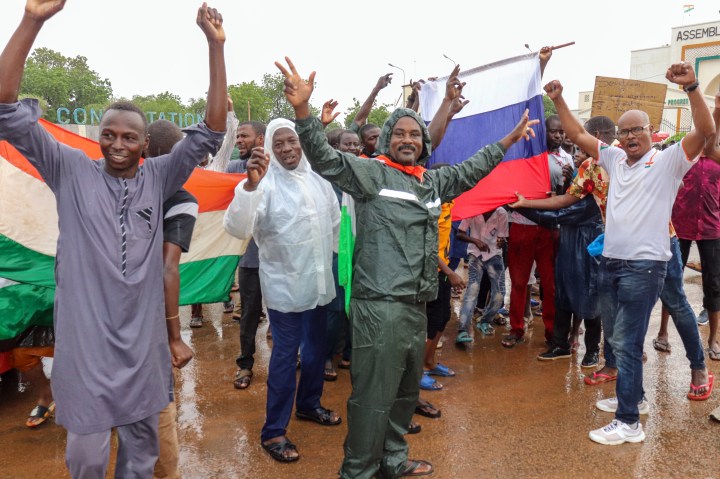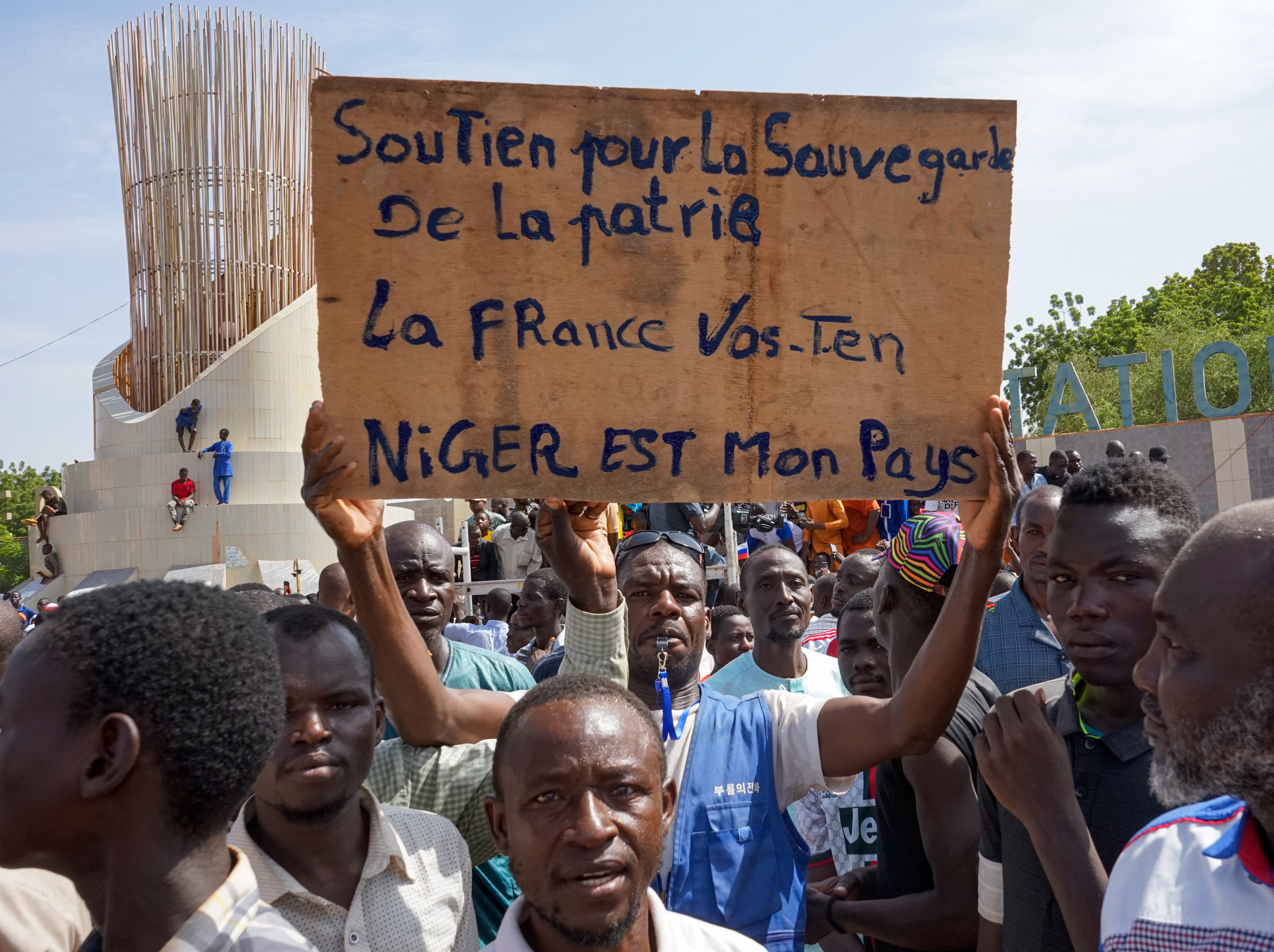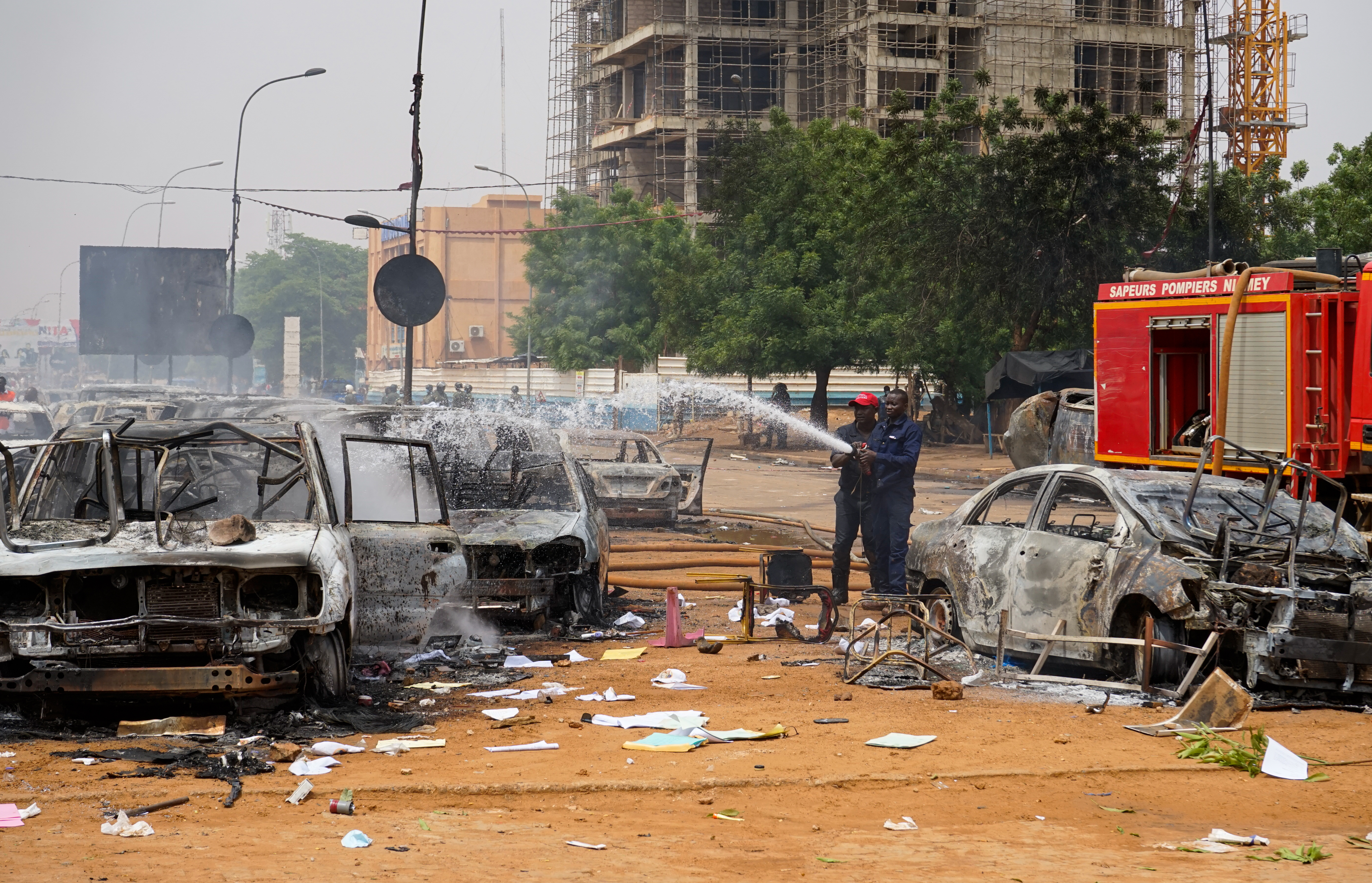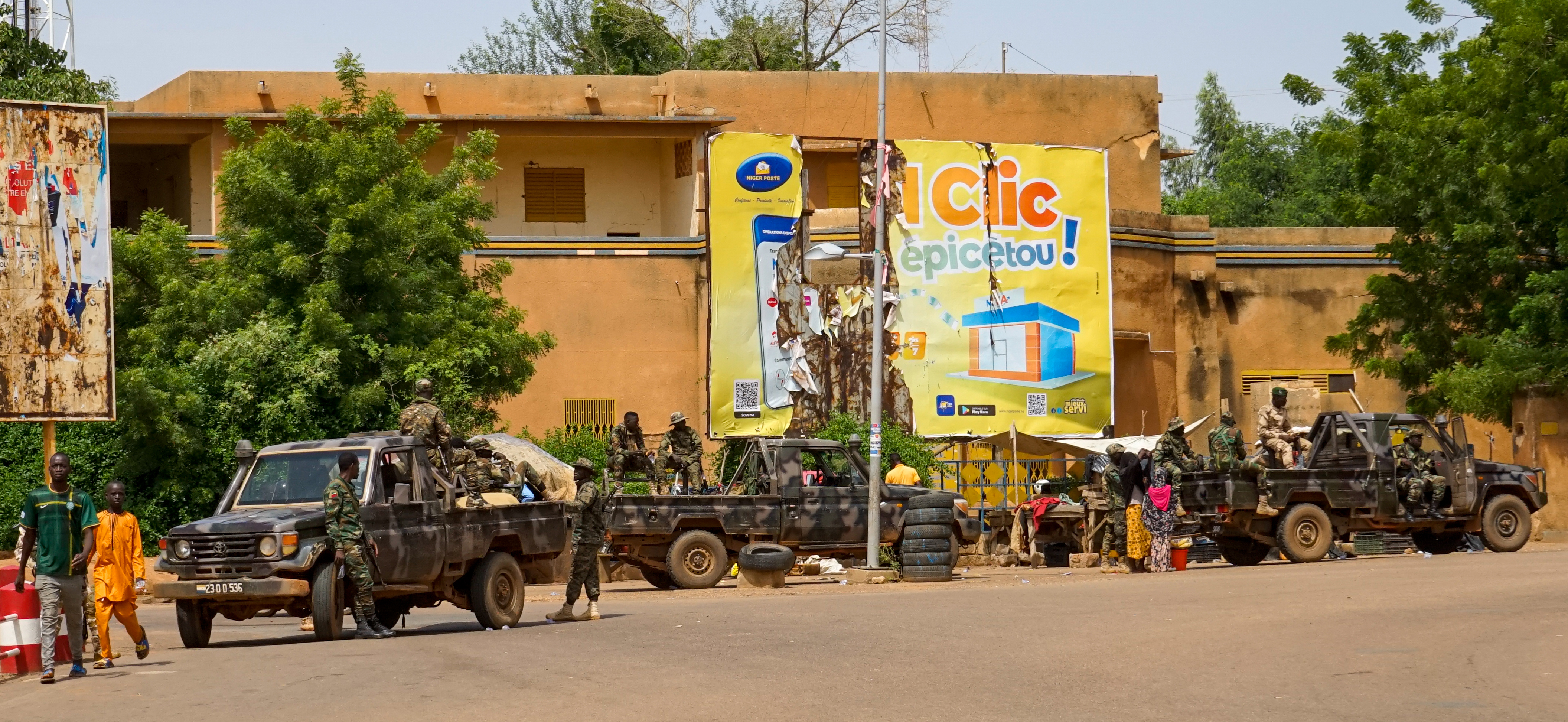WEST AFRICA COUP OP-ED
Military coup in Niger unveils a complex web of actors and interests

The waves of military coups in West Africa are becoming a serious concern and if the trend is not urgently redressed, military regimes in West Africa and the Sahel may soon outnumber civilian governments.
On 26 July 2023, Niger experienced the fifth military coup in its troubled history. The head of the Presidential Guard, General Omar Tchiani, led a group of army officers who overthrew and detained the civilian president Mohamed Bazoum.
On the second day, General Tchiani was declared the new leader of the country.
Just like in other West African countries that have been struck by coups in the past two years, the Tchiani-led coup plotters cited a “deteriorating security situation and bad governance” as the main reason for the military takeover.
The plotters announced the immediate closure of the country’s borders, imposed a nationwide curfew and suspended all the institutions of government.
More worrisome are the public celebrations that have accompanied all the military coups in the region, which reflect the illegitimacy of some of the incumbent civilian administrations that were removed.

People with a placard proclaiming ‘France go away, Niger is my country’ at a protest in Niamey, Niger, 30 July 2023. Thousands of supporters of General Abdourahamane Tchiani, head of the Presidential Guard, who declared himself the new leader of Niger after a coup against democratically elected President Mohamed Bazoum on 26 July, took to the streets of Niamey to demonstrate support for the coup. (Photo: EPA-EFE / Issifou Djibo)
While many have argued that such celebrations were directed against the civilian governments and not necessarily in support of the military regimes, these jubilant sights remain a dent in the marketability of democracy in Africa.
Indeed, liberalism has not delivered on its ideological promises on the continent.
Despite President Bazoum’s close partnerships with the US and other regional powers in the fight against terrorism, the country has struggled under the weight of insecurity and socioeconomic crises. While the country is rich in uranium, about 40% of the population earns less than $1 a day and hunger remains prevalent.
The motives
The coup in Niger has sent shockwaves through the region, raising concerns over the country’s fragile political landscape. It is essential to analyse the motives and interests behind this coup.
The interests of the coup plotters – primarily composed of a faction within the Nigerien military – appear to stem from a combination of political grievances and concerns over the government’s handling of internal security challenges, particularly in the face of rising insurgency threats in the region.
Moreover, longstanding frustrations over governance issues, such as corruption and lack of political representation, were likely to have played a significant role in fuelling the conspirators’ actions. As the situation unfolds, it will be crucial to closely monitor the coup plotters’ statements and actions to gain a clearer understanding of their objectives and potential impact on Niger’s security and stability.

A firefighter hoses torched cars near the Nigerien Party for Democracy and Socialism headquarters in Niamey, Niger, on 27 July 2023. (Photo: EPA-EFE / STR)
The international community, including France and the United States, as well as regional institutions in Africa, have condemned the “unconstitutional” change of government. The European Union has raised alarm over the growing instability of the region, and France must have been particularly worried about the anti-French songs echoed by the jubilant Nigeriens who were celebrating with a Russian flag.
The West is gradually losing its hegemony in the Sahel region.
Thursday’s telephone call between US Vice President Kamala Harris and Nigeria’s President Bola Tinubu has been categorised as the highest-level US engagement with Tinubu since his emergence as the president of the “crippled giant”.
Both Nigeria and Niger have been confronted with Boko Haram’s deadly reign of terror and the possibility of ceding the country to a military regime would threaten the US’ counterterrorist initiative in the region.
This coup has unveiled a complex web of actors and interests, necessitating a holistic analysis of the resurgence of coups in Africa.
Preliminary reports suggest that the military faction leading the coup has ties to various interest groups, including disgruntled military personnel and political elites dissatisfied with the current administration’s policies and the idiosyncrasy of President Bazoum.

Security forces on guard in Niamey, Niger, on 30 July 2023. (Photo: EPA-EFE / Issifou Djibo)
While internal dynamics are important, it is also pertinent to scrutinise the potential external influences that may have contributed to the coup’s planning and execution.
The regional reality, such as the spillover effect of coups in neighbouring countries, and transnational connections could play a pivotal role in shaping the coup plotters’ interests as Niger is situated in a volatile region known for instability and terrorist activities.
Understanding the underlying motivations and interests of the coup plotters is essential for both the international community and regional actors to formulate an effective response that prioritises the restoration of democratic governance and the preservation of peace and security in Niger and its neighbouring countries.
Regional military regimes
The waves of military coups in West Africa are becoming a serious concern and if the trend is not urgently redressed, the number of military regimes in West Africa and the Sahel may soon outnumber civilian governments.
The African Union (AU), and regional institution, Ecowas, must brace themselves for a prolonged battle to rid Africa of military coups and other forms of unconstitutional changes of government (UCGs).
This becomes even more imperative as the African Peer Review Mechanism (APRM), an agency of the AU, recently launched its “Africa Governance Report 2023: Unconstitutional Change of Government in Africa”. About 43 countries in Africa, including Niger, participated in the APRM. The report highlights the causes, drivers and triggers of unconstitutional changes of government and engages the efficacy and effectiveness of the AU policy, principles and legal norms against UCGs.
Incumbent civilian administrations have been accused of abuses of power, corruption and authoritarian tendencies. It is crucial to enforce mechanisms that hold these leaders accountable for their actions and decisions. Strengthening democratic institutions, promoting transparency and fostering a culture of public participation are vital aspects of democratisation.
Moreover, the issue of illegitimate tenure elongation poses a significant challenge to democratic progress in the Sahel region. When leaders manipulate the constitutional and electoral processes to engage in power consolidation beyond legal limits, it undermines the principles of democracy and can lead to instability, conflicts and military coups.
I commend the efforts made by regional institutions such as the AU and APRM in promoting political stability and security, particularly in dealing with military regimes and other threats.
Despite some shortcomings, the AU remains instrumental in preventing Africa from facing even greater challenges. Thus, while they have made useful interventions on the continent, it is essential to recognise the importance of tackling additional issues that also impact on political stability and democratic governance.
A comprehensive multilateral approach is necessary to tackle structural violence and safeguard democracy. This involves promoting inclusive governance, curbing autocratic tendencies in civilian administrations, and preventing illegitimate tenure extensions to ensure stability and progress.
By focusing on these areas, Africa can make further strides toward the attainment of Agenda 2063. DM
Dr Adeoye O Akinola is Head of Research and Teaching at the Institute for Pan-African Thought and Conversation, University of Johannesburg.
















 Become an Insider
Become an Insider
Comments - Please login in order to comment.